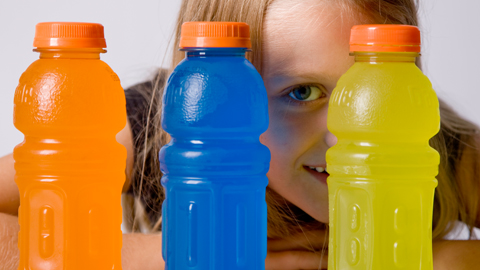Study of the consumption of isotonic and energy drinks in children and adolescents

12/12/2016
The funds collected with the campaign will go towards the project BEENIS (sugary, isotonic and energy drinks), whose aim is to determine consumption by youth at different ages of sugary, isotonic and energy drinks, how, when and why they do it, and what knowledge, they and their parents, have about the risks involved.
Participating in the project, presented through the scientific crowdfunding platform Precipita, are researchers from the IDIAP Jordi Gol and the UAB who at the same time are primary healthcare professionals, lecturers and psychologists.
According to Vanessa Cruz, nurse at the Primary Healthcare Centre Nord in Sabadell and main researcher of the project, “at the consultation office we have seen an increase in the consumption of soft drinks, and this leads us to think that we are facing a problem which could effect a large part of the population”.
Most concerning is the consumption on behalf of children and teenagers of isotonic drinks (normally taken after sport activities, given their elevated amount of water and minerals such as sodium and potassium) and of energy drinks (with stimulants, which are commercialised for their ability to improve performance and energy levels). “We've observed that it is becoming more frequent for children to drink isotonic drinks as if they were soft drinks, with the permission of their parents, who are not aware of the risks involved”, Vanessa Cruz alerts.
Different studies have linked sugary drinks to obesity and cavities in children and, as the lead author explains, harmful effects were detected recently in the excessive consumption of isotonic and energy drinks [1] (problems in school performance, sleeplessness, anxiety, heart and kidney problems).
The study, led by the IDIAP Jordi Gol, will be conducted on behalf of the primary healthcare sector of the Gerència Territorial Metropolitana Nord in 70 educational centres of Sabadell which have accepted participating in the study. A total of 24,500 questionnaires will be answered: 9,300 addressed to parents of 1st to 4th grade students; 6,500 to 5th to 7th graders; and 8,700 to 8th to 12th graders.
In order to be able to compare the results obtained with those from other countries, researchers adapted the questionnaires to be similar to those from a previous study conducted by the European Food Safety Autority (EFSA) [2], where what was analysed was exclusively the consumption amount of energy drinks among a small sample of different European countries. “Our questionnaires will also gather information on the consumption of isotonic drinks, something which has not been covered by any other study, and also on sugary drinks, as well as information on the situations of comsumption, the way in which they are consumed (combined with other substances, etc.) and the knowledge participants have of the risks of an excessiveconsumption”, explains Pere Torán, coordinator of the Northern Metropolitan Research Support Unit at IDIAP Jordi Gol.
“The information on consumption habits amongst children and adolescents, on parental knowledge of the risks and counter-indications of these drinks, and their relation to sociocultural aspects is necessary in order to design campaigns in prevention and health education. These are aimed at parents and students and conducted through the educational centres in order to determine which ages need more targeting and later assess the results of these interventions”, Vanessa Cruz affirms.
Interested in collaborating?
The project is open to everyone interested in participating and making the study a reality by contributing to the project through the Precipita website.
What will the money go towards?
The crowdfunding establishes a minimum and maximum, to be raised in a certain time period. The minimum sum will cover the costs of printing the questionnaires for parents and students. The maximum sum will cover expanding the questionnaire to include students from vocational training centres, as well as the costs of publishing the results in an open access science journal, characterised by providing free access to research articles (previously paid for by the authors).
[1] Breda JJ, Whitng SH, Encarnação R, Norberg S, Jones R, Reinap M, Jewell J. Energy drink consumption in Europe: a review of the risks, adverse Health effects, and policy options to respond. Front Public Health 2014 Oct 14;2:134. DOI: 10.3389/fpubh.2014.00134
[2] http://www.efsa.europa.eu/en/supporting/pub/394e